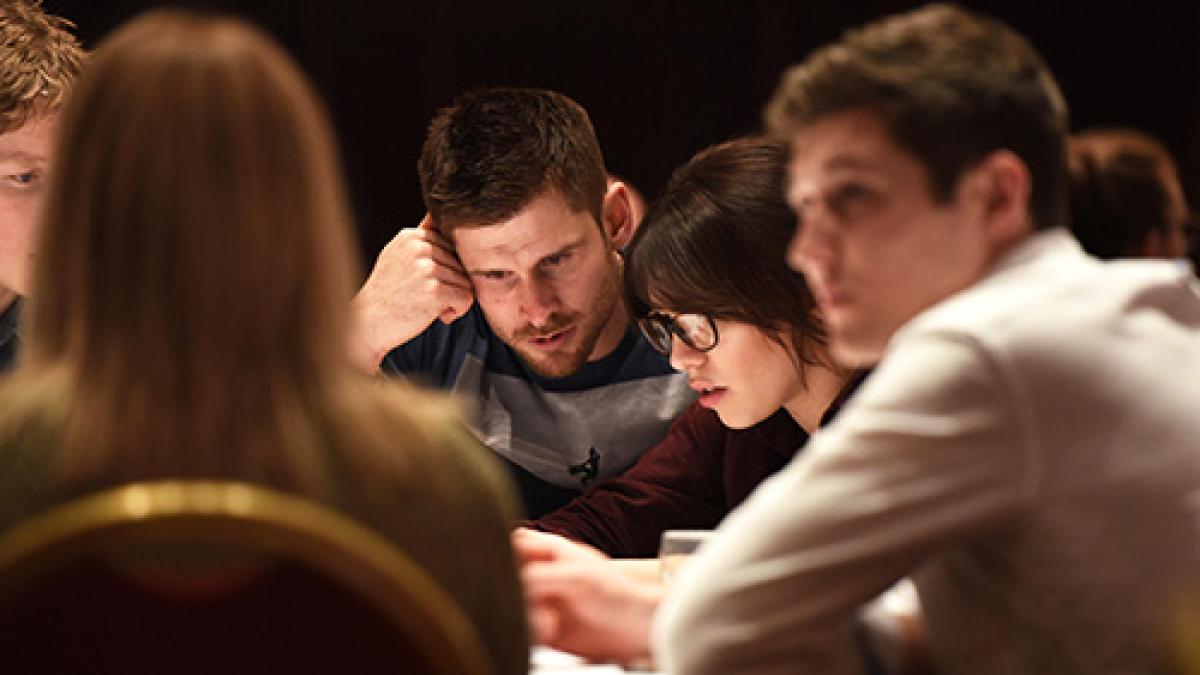Students with an idea for an app to treat children with cystic fibrosis won the votes of their peers in a competition about improving physiotherapy by using technology.

Technology innovations from CSP student reps included apps and a falls prevention device - photo: Asadour Guzelian/Guzelian
Read other stories from the conference
The group was one of several taking part in an impromptu Dragon’s Den-style competition on 6 February at the CSP student representatives development weekend in Leeds.
The winners said the biggest barrier to treating children with cystic fibrosis was adherence. And their app, aimed at children aged from three to 12, would use games and stories to take youngsters on a journey through their treatment programmes.
Managed by physios who would input a tiered personalised programme, the app would encourage self-management.
The competition was hosted by Physiopedia founders Rachael and Tony Lowe. Physiotherapist Ms Lowe said she was ‘an explorer’ – of nature as youngster, and of mountains, ski slopes and technology as an adult. She said she started the first physio blog in 2007 and was one of the first physios on Twitter.
‘Physiopedia wouldn't be what it is today without all the exploring I have done,’ she said.
‘I have explored our global profession and the educational needs of the profession in different places. More importantly, I have explored innovation outside our profession and how we might apply these opportunities to our profession.’
She told the more than 100 reps that the physiotherapy profession was resistant to change. Physios took years to respond to innovations and that was threatening the profession, she warned.
‘We need to be more proactive, embrace change and move the profession forwards before others do it for us,’ she said.
‘To do this we need to be brave and explore, to seek out opportunities and not be afraid of change.’
The session she and her co-founder delivered was designed to encourage the students to embrace change and come up with ideas that might make a difference.
Other concepts included an auto-inflating device to protect people against injuries from falls. The innovators said the estimated £3,000 cost for each device would be offset by savings to the NHS on other services.
Meanwhile another group had planned an electro-charging exercise machine. Their idea was to tackle obesity by encouraging physical activity with exercise machines in public places. But the exercise machines would have a dual purpose – they could charge users’ phones and other electronic devices.
Number of subscribers: 1